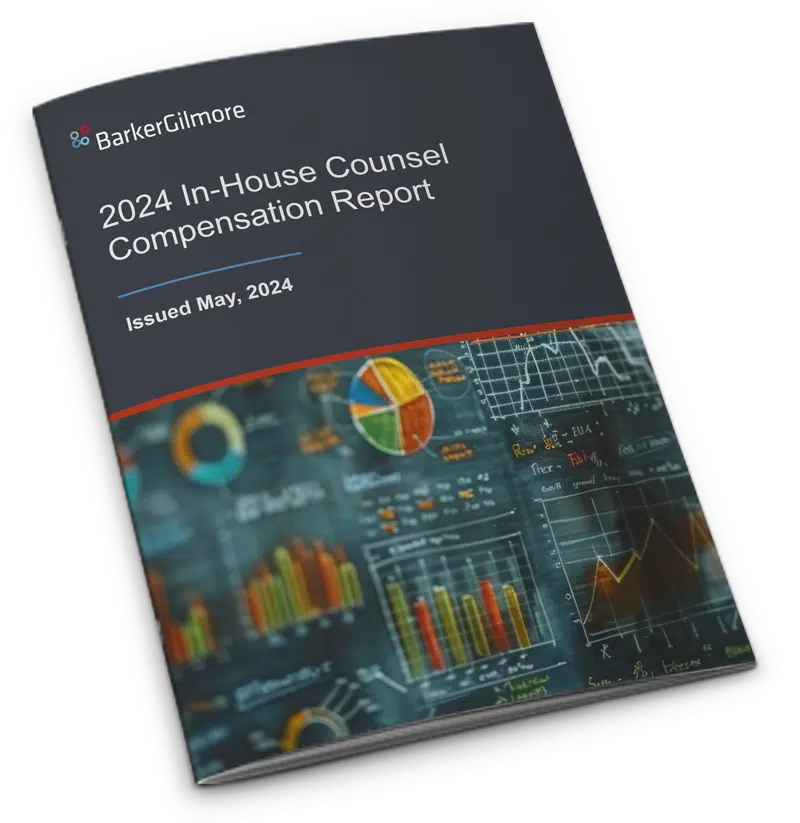In a recent article “Seven Steps to GC Succession Success,” we explored how the concept and practice of succession planning have been expanding at many companies. What had been a focus primarily on ensuring a replacement for the CEO has now gained traction as a broader, deeper management development process focused on key positions. The GC, as the head of the legal department and a key resource and advisor to the board, is an increasingly crucial spot given the recent explosion of highly technical and potentially dicey regulations and possible litigation. Certainly, no company wants to risk going without a GC for even a brief period.
For companies that have gotten the message and want to plan for a successor to their GC, what should they be looking for? The short answer is, be sure to look beyond the surface spec, which will include legal education and appropriate work experience. Consider that checklist merely a jumping off point in the General Counsel search. It is essential to get beneath the surface to assess personality, leadership style, and all-important fit with a specific company’s culture if the GC is to effectively partner with the board and lead his or her department.
Based on our significant and successful track record placing GCs, we offer the following guidelines on what to seek as you recruit General Counsel.
Legal lens, business bias
While the GC position requires a lawyer, it requires someone with business skills in equal measure. The position entails a much broader set of responsibilities than just practicing law, and a very different set of skills. Laurence H. Midler, Executive Vice President and General Counsel for CBRE Group, Inc., notes that many lawyers are neither trained nor have the core competencies that align with what is required in a GC. “You have to have the presence to be able to influence the board of directors, whose members come from a variety of business backgrounds,” says Midler, adding, “and many of them may not even particularly appreciate having lawyers involved in their business.” That may be partly because businesspeople often believe lawyers chiefly serve a policing function, but as a partner to those who run the business, the GC cannot stop there. If a business proposal is not legally permissible or, equally important, ethically desirable, an effective GC will know enough about the strategy and business priorities to provide alternate, safer paths for arriving at the desired result.
Partner and collaborator
Attorneys are often trained… and have the personalities… to work independently, to be the experts. To operate effectively, however, “the GC needs to continually keep the business objectives in mind,” says Theodore Bobby, GC of H. J. Heinz Company. “You always have to be looking for solutions, not acting as the lawyer who tells those in the business they can’t do what they want to do. Although of course sometimes you do have to stand up and say no. A successful General Counsel must be a business partner with the CEO and the executive team.” The GC must actively build relationships with business leaders and be steeped in their priorities. Recognizing that legal advice cannot be issued in a vacuum, but always in the context of the business, is partially what distinguishes an inside partner from an outside advisor. Business leaders want to learn what their options are, potential ways of addressing a particular issue and understanding the risks inherent in each approach, determining what is acceptable, and how to manage it.
Cool and confident
The “partner and collaborator” criteria for a GC notwithstanding, the GC has to have the backbone to say “no” and stick to it when something is a legal or ethical absolute. A great GC is “not afraid to tell people what they don’t want to hear,” as one GC told us. “It takes a great deal of poise and confidence to deal with public company boards,” says Midler, “particularly when times get tough and they’re dealing with highly sensitive issues. It can make or break the GC.” A few of the personality traits required to operate successfully as a GC in crisis include the ability to remain unemotional and even-keeled regardless of the circumstances. “The key to being a strong GC,” says Bobby, “is judgment, and part of that is not overreacting to situations and keeping things in perspective. You know the world is not going to end. Keep calm, deal with the problem methodically, nonemotionally, and don’t over-lawyer.”
Superior manager
Of course a GC’s legal skills have to be first rate, but he or she has to be equally adept at working with people across the entire organization. That means relating to other senior team members as a subject matter expert and authority, as well as a peer. As a senior manager, the GC has to be able to build a capable legal team and to lead that team to manage what has become a vastly increased workload. With far less reliance on outside counsel now, that team will likely be knee-deep in regulatory concerns and a wide range of other legal matters. When looking to hire a GC, make sure that a sterling legal resume doesn’t blind you to other critical skills, including those that contribute to performing as a good team member and manager. Ironically, observes Noah Hanft, General Counsel of Mastercard, someone who has been a successful working attorney may find serving as a GC a difficult transition. “As a GC, you may find that you have to spend a lot of your time managing and letting others do the legal work, and it can be hard but crucial to resist the tendency to micro-manage.”
Passion for the position
Seek GC candidates who are passionate about building a career as a GC. Today, the GC is at the center of the action as a key member of the leadership team and a critical contributor in board meetings, on essential committees, and on calls with outside stakeholders. The opportunity is even more compelling than it was, say 15 years ago, and we witness the enthusiasm when we source candidates for GC positions. Clients are now able to hire the best candidates from competitors, law firms, and prominent government posts. The GC career route, a first-choice career for many skilled attorneys, provides great opportunities and benefits for those who want to play an integral role at the highest corporate level. As the demands and responsibilities of the position have increased, the pool of candidates has grown in both quantity and quality.
Ethical example
As what Stephanie Brown, General Counsel of LPL Financial refers to as “the ethical compass of the company,” the GC must “understand the culture and make sure the ship stays on course.” In addition, says Hanft, “The GC needs to possess a combination of integrity and courage and stand for the right set of principles for both the company and the shareholders.” The GC has to be able to engender trust on the most sensitive issues relating to ethics and confidentiality. But sometimes it’s a delicate balance. While the CEO has to feel comfortable confiding anything in the GC, for example, if the GC becomes aware of any legal wrongdoing he or she has the obligation to act. There are a wide range of interests the GC represents, and in a public company, where the owners are shareholders, there can be conflicts regarding loyalties and a legal responsibility to uphold. The GC has to be able to navigate this often tricky terrain and do what is both legally and ethically correct. The best test, says Brown, is for the GC to continually ask the question, “Is this good for the company?”
In summary
Thanks largely to a heightened regulatory environment over the past 15 years and greater transparency in the boardroom, the GC has become an indispensable member of the senior management team, with broader and more diverse responsibilities than perhaps any other C-suite executive.The GC is at the epicenter of a wide range of activities… adherence to regulatory requirements, increased corporate legal exposure, government relations, evaluating shareholder proposals, direct communications between shareholders and the board, and enterprise risk management, to name a few.
In our search work, we see companies upping the ante to recruit General Counsel with a broader, more crucial set of responsibilities, including someone who can serve as a trusted partner to both the CEO and the board. Given the central importance of the GC’s work, it is little wonder that companies do not want to settle for anything less than the most capable GC they can find. When seeking that candidate, make sure to go well beyond the legal resume and other “easy” checklist items and dig deep to get to the personal and interpersonal skills that will make the difference between a merely competent GC and a truly great one.
A legal recruiting firm that specializes in General Counsel search can help you find a diverse slate of qualified individuals with these important characteristics.
For more tips on how to recruit General Counsel, download our guide, Why You Need a New Strategy to Recruit Today’s GC.
Bob Barker is the managing partner of BarkerGilmore LLC, a leading executive search firm specializing in general counsel, chief compliance officer, and board member recruiting.
Connect with a legal recruiting advisor
* indicates required fields






